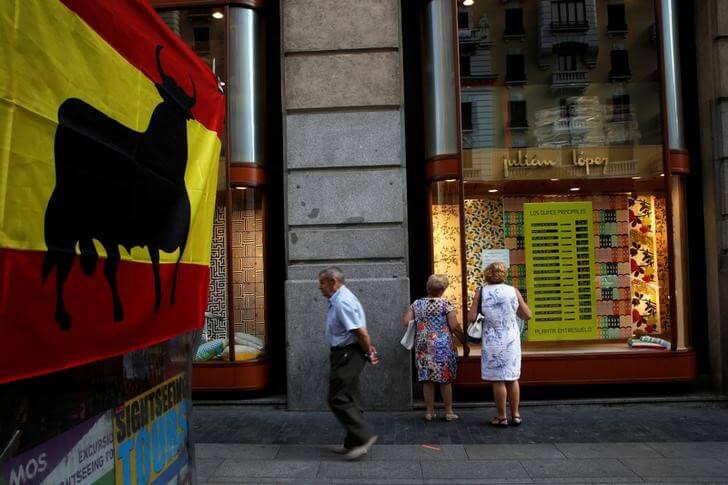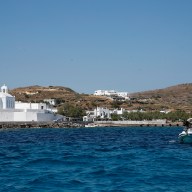By Jan Strupczewski and Gernot Heller
BRUSSELS (Reuters) – The European Commission’s decision to spare Spain and Portugal fines over their excessive budget deficits signals a tentative effort to promote more expansionary economic policy in response to Britain’s destabilizing vote to leave the European Union. Economics Commissioner Pierre Moscovici defended Wednesday’s leniency by pointing to growing public doubts about Europe reflected in the Brexit referendum vote last month.
He was keen to ensure that a “bossy Brussels” did not widen euroscepticism at a time when the euro zone’s recovery from a multi-year sovereign debt crisis is weak, uneven and faces a potential setback due to uncertainties over Brexit. “Particularly in the current wider situation with Brexit, countries that have taken severe measures in the crisis should be able to present their case, also on social impacts, for no fines,” a senior official in one euro zone government said, speaking on condition of anonymity. “Imposing fines would affect the economies and the population, no doubt. Europe has to show some understanding with the situation as well,” he said.
Fiscal hawks in northern Europe cried foul after the two southern countries escaped financial penalties for breaching the bloc’s Stability Pact budget rules again, although Madrid and Lisbon may yet suffer a suspension of some EU budget payments. But outrage was muted after EU sources disclosed that Germany’s usually super-hawkish finance minister, Wolfgang Schaeuble, had intervened personally to argue against sanctions.
“The Stability Pact has died a second time,” said Daniel Gros, director of the Brussels-based Centre for European Policy Studies, recalling that France and Germany had torn up the first version of the rules in 2003 to avoid sanctions on themselves. Conservative German economics commentator Werner Mussler wrote in the Frankfurter Allgemeine Zeitung that the official justification made clear the rules were “empty talk” and would never lead to fines. “Might these (eurosceptic) doubts not be due to the constant bending and breaching of the rules by the Commission?” he asked.
“COMPREHENSIBLE”
Jeroen Dijsselboem, chairman of euro zone finance ministers, who is keen to uphold the credibility of the rules, expressed dismay with the Commission decision not to recommend fines.
“It is disappointing that there is no follow up on the conclusion that Spain and Portugal did not take effective action to consolidate their budgets,” the hardline Dutch finance minister said in a statement. “It must be clear that despite all the efforts already taken, Spain and Portugal are still in danger.”
Another senior euro zone official said a Dutch or Belgian finance minister who now tried to convince parliament that savings measures were needed to respect the Stability Pact would be “laughed out of the room”. The volume of criticism forced German Chancellor Angela Merkel to insist on Thursday that the deficit limits remained in force despite the Brussels decision.
“I don’t think the decision means that the Stability Pact is no longer valid,” she told a news conference in Berlin, without explaining why her veteran finance minister had lobbied against punishing what the German media call the “deficit sinners”. A German Finance Ministry spokesman called the Commission’s reasoning “comprehensible”, noting that the possibility of withholding promised EU structural funds next year could prompt Madrid and Lisbon to make the necessary budget corrections. Berlin officials were silent on Schaeuble’s role but did not dispute Brussels reports that he had telephoned several centre-right EU commissioners to urge them not to fine Spain, which has a caretaker government led by fellow conservative Mariano Rajoy. It was unclear whether he had acted out of political clan loyalty in the centre-right European People’s Party, post-Brexit economic policy concerns, or fear of a eurosceptic backlash.
However, he shows no sign of willingness to alter Germany’s own balanced-budget policies to fund more public investment despite repeated prompting from Brussels over a massive current account surplus, equivalent to 8 percent of annual output. Economists say that has skewed the euro zone economy, leaving the burden of adjustment disproportionately on southern countries struggling with mass unemployment, especially among the young, and heavy public debt legacies from the crisis. But EU officials see little prospect of a more expansionary German fiscal policy before next year’s general election.
Moscovici and Commission President Jean-Claude Juncker are keen to do what they can in the meantime to promote economic expansion and a more balanced policy mix, while trying to preserve the credibility of the deficit limits. A senior member of the European Parliament’s economic committee, French liberal Sylvie Goulard, said Madrid and Lisbon should have received at least symbolic fines to show the rules were taken seriously. Otherwise, the risk was that “the decision will fuel euroscepticism in countries which follow the rules”. (Writing by Paul Taylor Editing by Jeremy Gaunt)
EU leniency for Spain, Portugal signals softer economic path

By Jan Strupczewski and Gernot Heller













